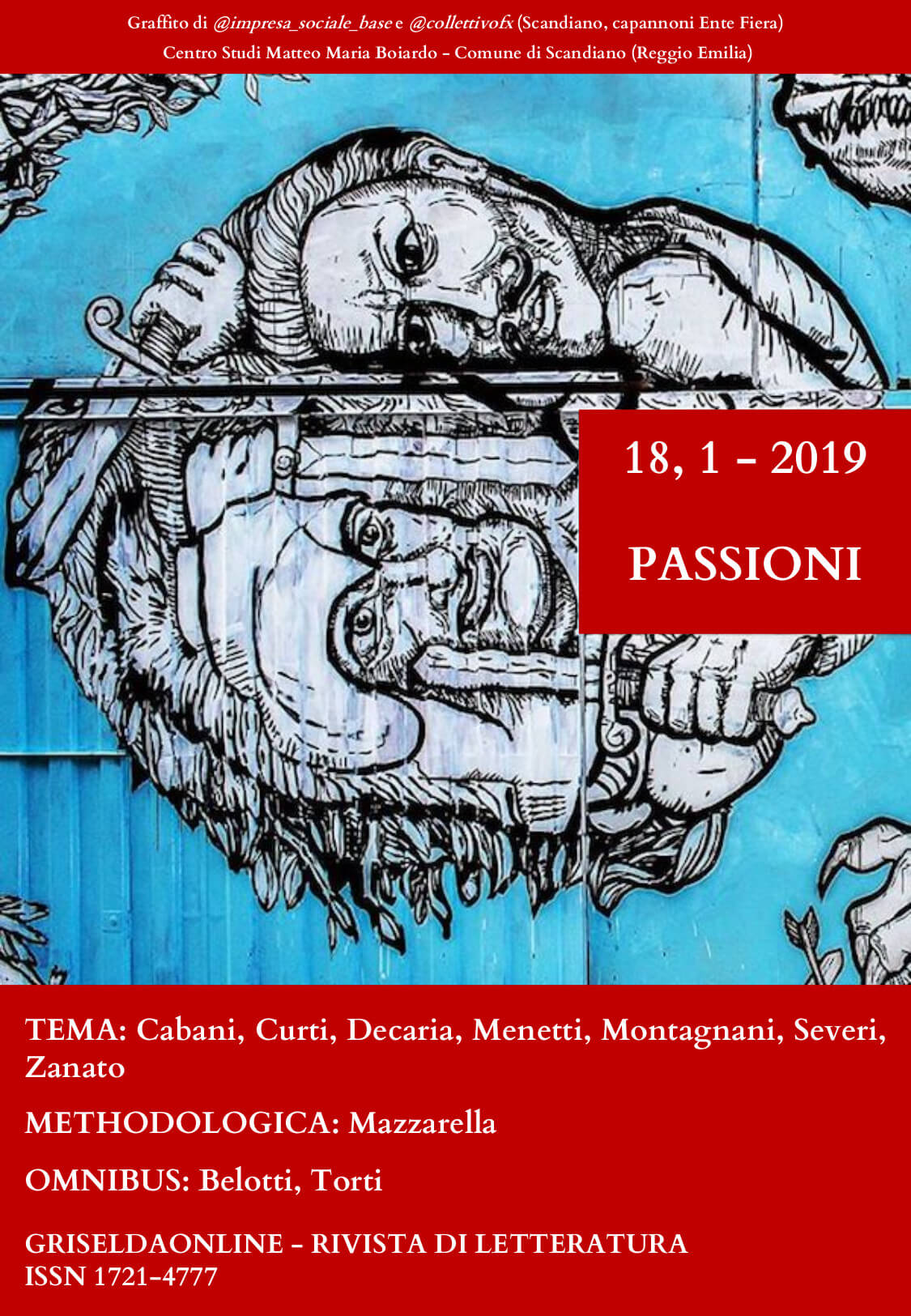«Deliberarno la lor passïone | cantando l’uno a l’altro far palese». I pastori innamorati nelle bucoliche ‘appassionate’ di Boiardo
DOI:
https://doi.org/10.6092/issn.1721-4777/9529Parole chiave:
Poesia bucolica, Matteo Maria Boiardo, i Pastoralia, le Pastorale, lessico amorosoAbstract
After Francesco De Sanctis’ slating in his History of the Italian Literature (chapter 12), for a long time bucolic poetry (in particular the Latin humanistic one) was considered as a literary product of pure imitation, which therefore had little to do with civil life as with the author's profound experience. The recent studies on the bucolic have instead re-evaluated this literary genre, highlighting the exciting contradictions on which the Three Crowns refounded it in the Fourteenth century. In particular, Matteo Maria Boiardo entrusts great political and sentimental responsibilities to his two bucolic collections, composed, at a distance of twenty years, on the double desk, first Latin (1463-64) and then vulgar (1482-83). From the political point of view, he uses the Pastoralia to take the side of the young Hercules of Este, while the Pastorale to invoke and then to thank Alfonso the Duke of Calabria for his providential intervention in the Salt War; from sentimental point of view, thanks to massive grafts taken from the elegiac lexicon, both the Pastoralia and the Pastorale are pervaded by the metaphorical field of fire provoked by love, in a way that does not seem to have precedents in the pastoral tradition.
Downloads
Pubblicato
Come citare
Fascicolo
Sezione
Licenza
Copyright (c) 2019 Andrea Severi
Salvo dove altrimenti specificato, i diritti d'autore di tutti i testi nella rivista appartengono ai rispettivi autori senza restrizioni.
La rivista è rilasciata sotto una licenza Creative Commons Attribuzione - Condividi allo stesso modo 4.0 Internazionale (licenza completa).
Vedere anche la nostra Open Access Policy.
Metadati
Tutti i metadati dei materiali pubblicati sono rilasciati in pubblico dominio e possono essere utilizzati da ognuno per qualsiasi scopo. Questi includono i riferimenti bibliografici.
I metadati – riferimenti bibliografici inclusi – possono essere riutilizzati in qualsiasi formato senza ulteriori autorizzazioni, incluso per scopo di lucro. Chiediamo cortesemente agli utenti di includere un collegamento ai metadati originali.







